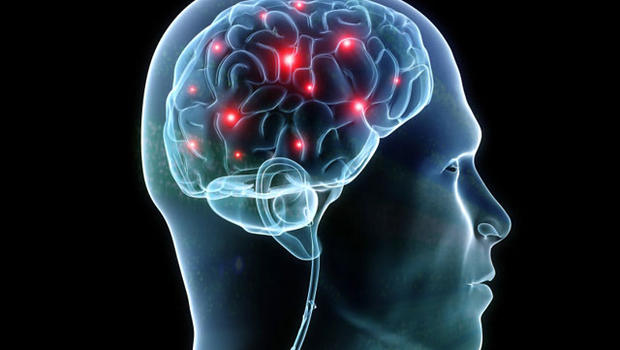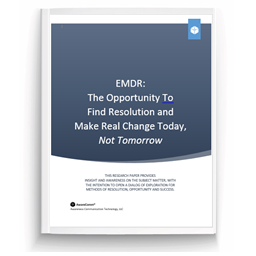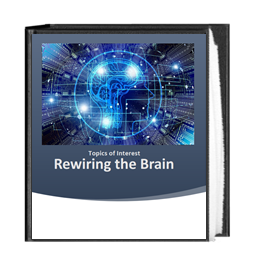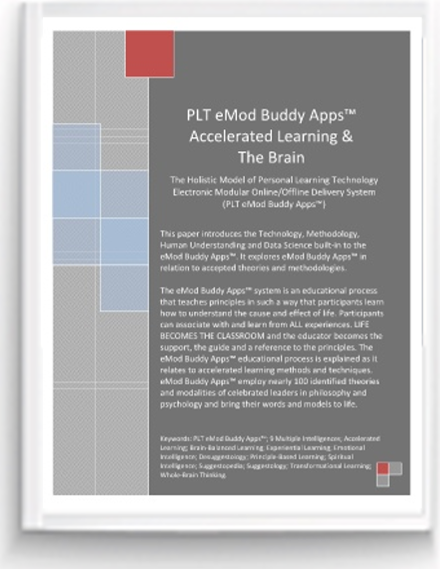
Opening Insights: PTSD is NOT Convenient
In seeking truth you have to get both sides of a story.
- Walter Cronkite -
PTSD or post-traumatic stress disorder has been associated with military service members since the war in Vietnam. In essence, after experiencing a traumatizing event, or series of events, the individual loses the ability to cope with the psychological effects and often becomes trapped in a cycle of reliving the event. More than a distraction, the effects can be debilitating, preventing affected individuals from doing their jobs, and in some cases, leading them to take their own lives.
Though associated with military service, PTSD can be diagnosed in anyone who has experienced traumatizing events in their life. The following articles by Reuters and Defense One discuss the experiences of healthcare workers during the COVID-19 pandemic and the brain protein treatment.
How convenient that a proposed cure for PTSD should come out amidst the surge of PTSD cases caused by the engineered COVID-19 pandemic. How interesting that it would be a pharmaceutical approach.
One of the markets that has gained the most from the COVID-19 pandemic is the pharmaceutical industry. Sure, they are selling a lot of the vaccine, but there is still more money to be made.
One of the oldest tricks in the book is to first create a horrible problem, let the affected people hurt for awhile, then rush in with a solution for sale.
The following article was published by Reuters, a "provid[ing] trusted intelligence that powers humans and machines to make smart decisions." It was written by Lisa Baertlein LA correspondent for Reuters.
Sept 5 (Reuters) - Nurse Chris Prott's knees jump, his heart races, his mouth goes dry and his mind floods with dark memories when he talks about working in the Milwaukee VA Medical Center's intensive care unit (ICU) during pandemic surges.
Prott shares a struggle common to many of the military veterans for whom he has cared for years: symptoms of post-traumatic stress disorder (PTSD).
Prott was among a half dozen ICU staffers who told Reuters of symptoms such as waking from nightmares bathed in sweat; flashbacks to dying patients during the pandemic's fear-filled early days; flaring anger; and panic at the sound of medical alarms. Those whose symptoms last longer than one month and are severe enough to interfere with daily life can be diagnosed with PTSD.
The surging Delta variant is heaping on fresh trauma as the United States and other nations begin to study PTSD in health workers. Data already showed that U.S. health workers were in crisis before COVID-19.
While PTSD is associated with combat, it can arise among civilians after natural disasters, abuse or other trauma. Health workers can be reluctant to equate their experience with that of returning soldiers.
"I feel like a schmuck calling it PTSD," Prott said. "It took me a long time to be able to talk to somebody because I see guys with real PTSD. What I've got going on, it's nothing in comparison, so you feel guilty for thinking that."
Psychiatrist Dr. Bessel van der Kolk knows better.
"On the surface, a nurse at your local hospital will not look like a guy coming back from Afghanistan," said the author of "The Body Keeps the Score: Brain, Mind, and Body in the Healing of Trauma." "But underneath it all, we have these core neurobiology-determined functions that are the same."
Pre-pandemic studies showed that rates of PTSD in front-line health workers varied from 10% to 50%. The suicide rate among doctors was more than twice that of the general public.
The American Medical Association (AMA) has tapped a military psychologist and the Department of Veterans Affairs' (VA) National Center for PTSD to help it measure the pandemic's impact.
Texas Tech University Health Science Center psychiatry resident Dr. Huseyin Bayazit and researchers in his native Turkey surveyed 1,833 Turkish health workers last autumn. The results, presented in May at an American Psychiatric Association meeting, showed a PTSD rate of 49.5% among nonphysicians and 36% for doctors. Rates of suicidal thoughts increased as workers spent more time on COVID-19 units.
Unions want to mitigate trauma by setting national rules for the number of patients under each nurse’s care. Workers say they should not have to pay for therapy, medication, and other interventions.
The AMA and other groups want more confidentiality for doctors who seek mental health services. Most ICU staff who discussed PTSD with Reuters requested anonymity for fear of repercussions at work.
New York's Mount Sinai Health System and Chicago's Rush University System for Health provide free, confidential mental health services.
Mount Sinai's new Center for Stress, Resilience, and Personal Growth offers a military-inspired "Battle Buddies" peer-support program for nurses. A chaplain from Rush's "Road Home" program for veterans runs a "post-traumatic growth" bereavement support group for ICU nurses.
The VA system provides no-cost, short-term mental health counseling through its employee assistance program. Many local VA facilities supplement those with spiritual counseling and crisis incident response teams, a spokesperson said.
'YOU HAVE TO DEAL WITH IT'
About 5,000 U.S. physicians quit every two years due to burnout, said Dr. Christine Sinsky, an AMA vice president. The annual cost is about $4.6 billion - including lost revenue from vacancies and recruitment expenses, she said.
Hospital survey results in March led the Department of Health and Human Services to warn "staffing shortages have affected patient care, and that exhaustion and trauma have taken a toll on staff's mental health."
Trauma surgeon Dr. Kari Jerge volunteered to work in a Phoenix COVID-19 ward during last winter's surge. She turned down substantially more pay to return to the ICU after the Delta variant surge.
Jerge encourages others to prioritize "self-preservation," but worries about the loss of expertise. "There is infinite value in a nurse who's been working in the ICU for 20 years and just has a gut feeling when something's going wrong with a patient," she said.
Nurse Pascaline Muhindura, 40, who cares for COVID-19 patients in Kansas City, Missouri, has advocated for health worker safety since losing a co-worker to the disease early in the pandemic.
"It keeps getting worse and worse. We are heading back to that place - that woke up those emotions again," said Muhindura, who added that many employers do not offer adequate insurance coverage for therapy.
An ICU fosters the kind of camaraderie forged in battle. A group of Southern California COVID-19 nurses got matching tattoos. Health workers commiserate over crying their way home after tough shifts, support each other on social media, and push colleagues to seek help.
"There is nothing wrong with feeling this way," said VA nurse Prott. "You have to deal with it though."
Reporting by Lisa Baertlein in Los Angeles Editing by Donna Bryson and Bill Berkrot
https://www.reuters.com/business/healthcare-pharmaceuticals/each-covid-19-surge-poses-risk-healthcare-workers-ptsd-2021-09-05/
This article was published on September 5, 2021 by REUTERS: Each COVID-19 surge poses a risk for healthcare workers: PTSD
The great cost of PTSD in the healthcare system and beyond cannot be overlooked. This is an obvious assessment. What is not so obvious is how PTSD will be addressed. One research lab claims to have uncovered a potential chemical treatment for PTSD.
Can a behavioral ailment be cured with chemical means?
The following article was published by Defense One, "deliver[ing] news, breaking analysis, and ideas on the topics and trends that are defining the future of U.S. defense and national security." It was written by Patrick Tucker, Technology Editor for Defense One.
Informational Insights: Invent the Problem - Sell the Solution
A new company, with funding from the U.S. Army, may have found the secret to treating PTSD with a pill or some other direct form of medicine.
Right now, treatments for PTSD range from virtual reality to electronic brain stimulation to hallucinogens and ecstasy. But while these can lessen symptoms, they don’t offer a direct cure.
Dr. Jennifer Perusini, founder of Neurovation Labs, says PTSD has a unique biomarker called GluA1. It's a protein that is part of a glutamate receptor system, which helps memory formation. But trauma can also spur the creation of GluA1.
In 2014, during experiments for her doctoral thesis, she found that rats subjected to traumatic experiences had more GluA1. They also experienced anxiety and symptoms associated with PTSD, even when they weren’t experiencing threatening noises and lights.
Blocking the protein removed the anxiety, but the rats still displayed a healthy reaction to new frightening stimuli. That’s key, because it’s important to retain the ability to be scared by actual threats.
Perusini is currently in pre-clinical trial mode for a medicine that can block GluA1, and the clinical trial process could take years. But she already has financial support from the Air Force and from the Army through the Army’s xTech program, which awarded her $145,000 to develop her model that targets the protein.
Neurovation Labs was one of five companies xTech featured this week as part of a showcase of finalists that had passed through the program.
Zeke Topolosky, chief of the strategic partnerships office at the DEVCOM Army Research Laboratory, told Defense One that the competition to get into the xTech program is strong.
“We get about 300 to 400 proposals. We select about 50 to do a live pitch… That’s when we do really technical vetting: ‘OK, this solution is really viable. It works. It solves a problem the Army needs solving.’ Those are the companies that make it out of the pitch round,” he said.
In addition to funding, the program also helps companies navigate the Army’s acquisition process to speed new technology development and deployment.
This article was published on September 3, 2021 by DEFENSE ONE. This May Be First Step In Curing PTSD With A Pill
Possibilities for Consideration: Fixing the Symptom
It seems to counter to logic that a chemical solution to a behavioral problem would be sought. When I fall and scrape the skin off of my knees, it hurts. An over-the-counter pain medicine will help alleviate the signals of pain in my brain, but it will not repair the damage to my skin.
Pain is the symptom, not the cause.
Fixing the symptom will not address the cause.
The cause will remain.
Perhaps a proven non-pharmaceutical solution to PTSD, that has been established as safe, effective, and available would be preferable to a pill that alters your brain physiology.
Maybe we're old-fashioned here, but taking a pill to erase memories sounds kinda scary... AND it sounds like it could be easy to abuse, both by those who take it and by those handing them out.
Examine an alternative that does not change your brain chemistry – that instead reliably address the root cause of the ailment – no risky drugs necessary, plus REAL resolution is the result.

EMDR: The Opportunity to Find Resolution and Make Real Change Today, Not Tomorrow

Rewiring the Brain

PLT eMod Buddy Apps: Accelerated Learning and The Brain
(See note below)
Note: request permission to access PLT eMod Buddy Apps: Accelerated Learning and The Brain – contact: SOS@awarecomm.com
Imagine, just for a moment, that those who control the pharmaceutical industry and those in control of our governments do not have the people's best interests at heart.
What would it look like if those individuals in command decided to change the way we think over time through technology influence and social conditioning?
What would it look like if those same individuals, satisfied with their tampering through technology and social engineering, sought to solidify their grasp of control through the mass injection of fear (COVID-19 pandemic)?
Now, the world population will cry for the goods/services their organizations produce.
People will come to love their oppression,
to adore the technologies that undo their capacities to think.
– Aldous Huxley –
Further tampering with the social maturity levels, erecting great walls of divide, elevating fear, and controlling the narrative at every information outlet will ensure the fruit for harvest – people – will continue to be a reliable resource.
Their power is amplified, their control is unchallenged, their rule is absolute... and the only real power, the power of collective thought and intention, is wholly reined in.
The really frustrating part about this observation, is that most people don't see it because they don't want to see it. All the pieces are laid clearly before them, if only they would connect the dots!
They are plugged into the machine. The machine removes their worries, provides endless stimulus, subtracts their responsibilities. Aldous Huxley said it best:
There will be, in the next generation or so, a pharmacological method
of making people love their servitude, and producing dictatorship without tears,
so to speak, producing a kind of painless concentration camp for entire societies,
so that people will in fact have their liberties taken away from them,
but will rather enjoy it[.]
– Aldous Huxley –
Still not convinced? Take a look at a few current examples. It is your decision to make to either become concerned or to pretend this doesn't exist.
- Trudeau says he ‘won’t back down’ from anti-vaxx protesters
- In Italy, You Now Must Have A Vaccine Card To Fly, Take A Train, Or Go To University
- Mexico City to swap Columbus statue for one of indigenous woman
- Delta variant detected in all Philippine regions
- Explosive Report Reveals New Details On Coronavirus Research In Chinese Labs, Including Third Lab
Add Your Insight
Take a moment and examine…
- As you reviewed the material above, what stood out to you?
- What is the potential impact, economically and/or socially?
- What action is needed to stop or support this idea?
- You may want to consider whether you:
- want to be aware of,
- should become supportive of,
- would want to be active in this topic?
I have been impressed with the urgency of doing. Knowing is not enough; we must apply.
Being willing is not enough; we must do.
LEONARDO DA VINCI
